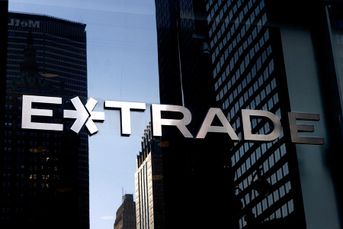The Financial Stability Oversight Council scrutinizes mutual fund liquidity, leverage in hedge funds

Regulators concerned about systematic risk in a market rout.
The Financial Stability Oversight Council released a preliminary report on its two-year review of the asset management industry, citing concerns about liquidity at mutual funds and leverage in hedge funds.
The report shows regulators’ concerns about the ability to sell mutual fund shares in a crisis, particularly in funds that invest in illiquid assets, such as junk bonds. Waves of selling can force funds to sell at distressed prices, hurting shareholders who remain — or even those who aren’t as quick on the trigger.
The FSOC report, released on Monday, referred repeatedly to the collapse of the Third Avenue Focused Credit Fund, which suspended redemptions in December, saying it could no longer meet redemptions without “resorting to sales at prices that would unfairly disadvantage remaining shareholders.”
Some funds have lines of credit for temporary surges in redemptions, and that those lines of credit could potentially create problems in a crisis, the report noted, causing stress to the lenders. And, while retail investors typically have a long-term outlook and will sometimes wade in to buy during a crisis, the report noted that institutional investors, such as insurance and pension funds, tend to flee all at once.
FSOC, which was created by the Dodd-Frank Act, also showed concern about the high use of leverage by hedge funds. “Leverage is not a perfect proxy for risk, but there is ample evidence that the use of leverage, in combination with other factors, can contribute to risks to financial stability,” the report noted.
While smaller hedge funds tend to use leverage sparingly, the largest hedge funds tend to use large amounts of borrowed money for their transactions, FSOC noted. While many of the funds’ leveraged positions tend to be hedged, the report notes that it needs more data to assess the risks. The main worry: A highly leveraged hedge fund could have difficulty unwinding assets in a crisis.
The report largely gave a pass to exchange-traded funds, whose structure allows them to redeem shares in-kind, rather than cash. It did voice concern, however, that events like the August “flash crash” could damage liquidity.
FSOC backed off from proposing rule changes for the mutual fund industry, saying that the Securities and Exchange Commission was already working on regulations to ensure fund liquidity. Action is expected by mid-summer.
The fund industry has largely pushed back against some of the SEC’s proposals, particularly its plans for classifying assets by their liquidity and requiring that funds keep a three-day liquid asset minimum. “Those elements simply do not comport with sound risk management practices,” wrote Paul Stevens, president of the Investment Company Institute, the funds’ trade association.
It did, however, urge regulators to make clear guidelines on the ability of funds to hold illiquid assets. The report also proposed enhanced reporting and disclosures by mutual funds of their liquidity profiles, as well as “robust liquidity risk management.”
Learn more about reprints and licensing for this article.








